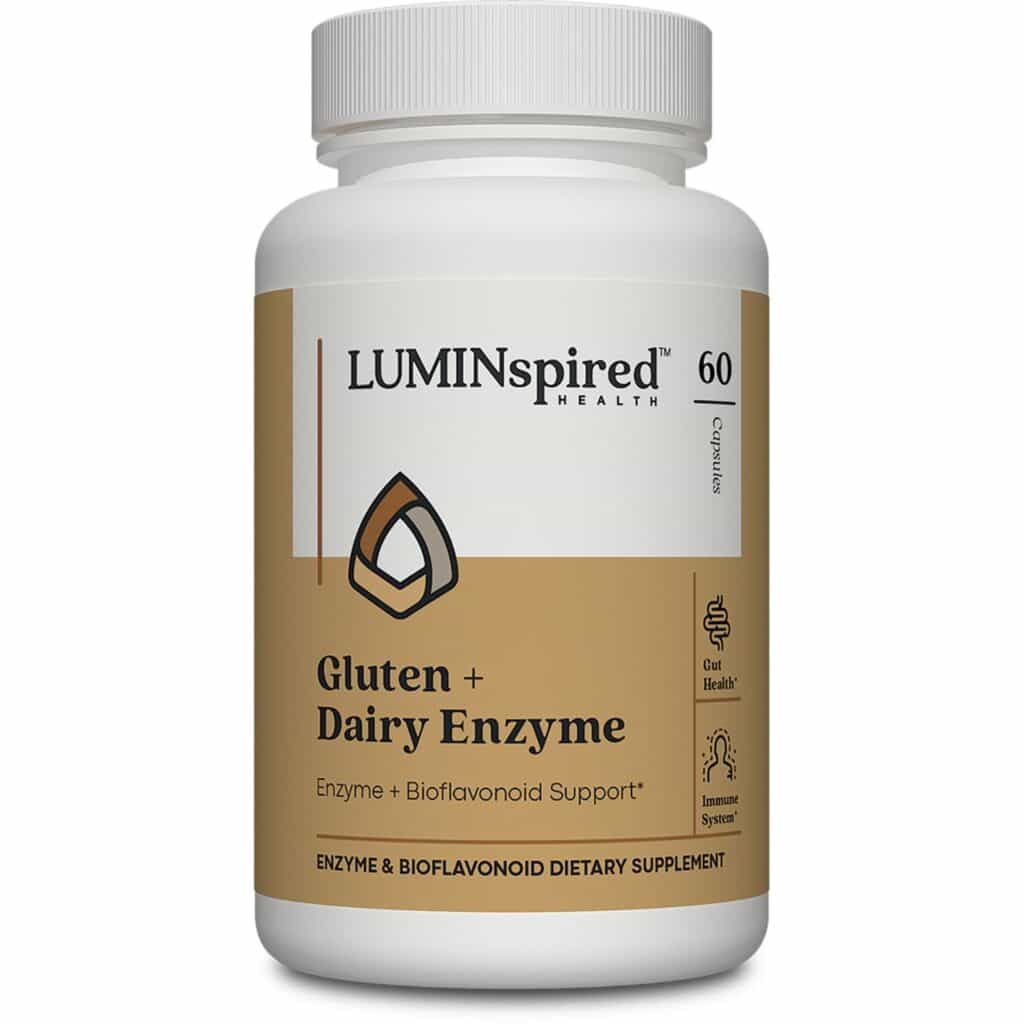Hidden Inflammation
For many people, eating gluten, a protein found in wheat, barley, and rye, doesn’t seem to cause any obvious symptoms. They can enjoy bread or pasta without digestive issues, fatigue, or brain fog. So why do we as Functional Medicine practitioners often recommend minimizing or avoiding gluten, even in patients who don’t “feel bad” when they eat it?
The answer lies in what’s happening under the surface: gluten can affect your gut and immune system in ways you might not feel right away, but that can still fuel hidden inflammation.
Gluten and the Gut Barrier
Your digestive tract is more than just a tube for food, it’s like a high-tech security system. Its job is to let nutrients in while keeping out harmful substances.
Research shows that gluten can increase the release of Zonulin, a protein that regulates the tight junctions between intestinal cells. When Zonulin levels rise, the gut barrier becomes more permeable (“leaky gut”), allowing fragments of food proteins, toxins, and microbes to slip into the bloodstream.
For some people, this process triggers an immune response, even if they don’t notice immediate symptoms. Over time, this low-grade immune activation can contribute to systemic inflammation.

Silent Inflammation vs. Obvious Symptoms
Not everyone reacts to gluten in the same way. Some develop overt symptoms like bloating, cramping, or headaches within hours. Others may experience more subtle, delayed effects, such as joint stiffness, skin breakouts, or fatigue that doesn’t seem connected to diet.
And in some cases, gluten may drive silent inflammation, the kind you don’t feel day-to-day, but that contributes to long-term imbalances in the body. Functional medicine is particularly concerned with silent inflammation because it can set the stage for:
- Autoimmune conditions
- Hormone imbalances
- Skin issues
- Chronic pain or joint issues
- Cardiovascular disease
- Mood and cognitive changes
Why Genes Matter
Certain people carry genes (like HLA-DQ2 and HLA-DQ8) that predispose them to stronger immune reactions against gluten. While only a small percentage develop full celiac disease, many others experience what’s called non-celiac gluten sensitivity (NCGS), an immune response to gluten that doesn’t show up on traditional lab tests but still drives inflammation.
Why Functional Medicine Takes a Closer Look
In functional medicine, we’re less concerned with “Do you feel bad immediately after eating gluten?” and more interested in “How is gluten affecting your immune system, gut integrity, and long-term health?”
By addressing hidden triggers of inflammation, including gluten, we aim to support:
- Healthy digestion and nutrient absorption
- Reduced immune overactivation
- Lower risk of chronic disease
- More stable energy and mood
That’s why we sometimes recommend an elimination trial (removing gluten for several weeks, then reintroducing it) or Functional lab testing for markers of gut barrier function and immune activation.

What You Can Do
- Listen to your body. If you have chronic symptoms—fatigue, joint pain, headaches, skin issues—it may be worth exploring food triggers.
- Try a guided elimination. Removing gluten for 3–4 weeks can give your body a reset.
- Focus on nutrient-dense foods. Think vegetables, clean proteins, healthy fats, and naturally gluten-free whole grains like quinoa or rice.
Not All Wheat Is the Same Around the World
It’s worth noting that how wheat affects the body can depend not only on a person’s biology but also on how the grain is grown and processed. In North America and other parts of the world with industrial agriculture, modern wheat varieties are bred for high gluten content and efficiency in baking. Commercial breadmaking also tends to rely on fast-rise yeasts and additives, which leave less time for gluten and other compounds to break down.
By contrast, some regions, including parts of Europe and the Middle East, still use heritage wheat varieties (like spelt, einkorn, or emmer) and traditional sourdough fermentation. These methods naturally reduce gluten content and can make bread easier to digest for some people. While gluten can still trigger inflammation in sensitive individuals anywhere, global differences in wheat strains and food processing may partly explain why people sometimes feel worse eating wheat in certain countries compared to others.
The Bottom Line
You don’t have to have celiac disease for gluten to affect your health. Even if you don’t feel bad after a slice of bread, gluten may still be stirring up hidden inflammation. At Inspired Health, we help patients uncover how food choices impact their health—even when the signs aren’t obvious. If you’re curious whether gluten may be playing a hidden role in your symptoms, we’d love to support you with personalized testing and a tailored treatment plan.

Gluten + Dairy Enzyme is a one-of-a-kind digestive aid that is designed not only to offer powerful DPP IV gluten-digestive enzymes but also to support the intestines, using specially targeted bioflavonoids. This formula also supports the digestion of the prolamine-rich peptides in gliadin and aids the intestinal barrier. Key ingredients include quercetin, luteolin, and lycopene.

Want more Inspired tips?
Be sure to follow us on Instagram, Facebook, and Pinterest.
Also, sign up for our newsletter!
Visit us in-person at Inspired Health, or schedule a TeleHealth appointment!
References:
- Lammers KM, Lu R, Brownley J, Lu B, Gerard C, Thomas K, Rallabhandi P, Shea-Donohue T, Tamiz A, Alkan S, Netzel-Arnett S, Antalis T, Vogel SN, Fasano A. Gliadin induces an increase in intestinal permeability and zonulin release by binding to the chemokine receptor CXCR3. Gastroenterology. 2008 Jul;135(1):194-204.e3. Epub 2008 Mar 21. PMID: 18485912; PMCID: PMC2653457.
- Hollon J, Puppa EL, Greenwald B, Goldberg E, Guerrerio A, Fasano A. Effect of gliadin on permeability of intestinal biopsy explants from celiac disease patients and patients with non-celiac gluten sensitivity. Nutrients. 2015 Feb 27;7(3):1565-76. PMID: 25734566; PMCID: PMC4377866.
- Fasano A. Intestinal permeability and its regulation by zonulin: diagnostic and therapeutic implications. Clin Gastroenterol Hepatol. 2012 Oct;10(10):1096-100. . Epub 2012 Aug 16. PMID: 22902773; PMCID: PMC3458511.






